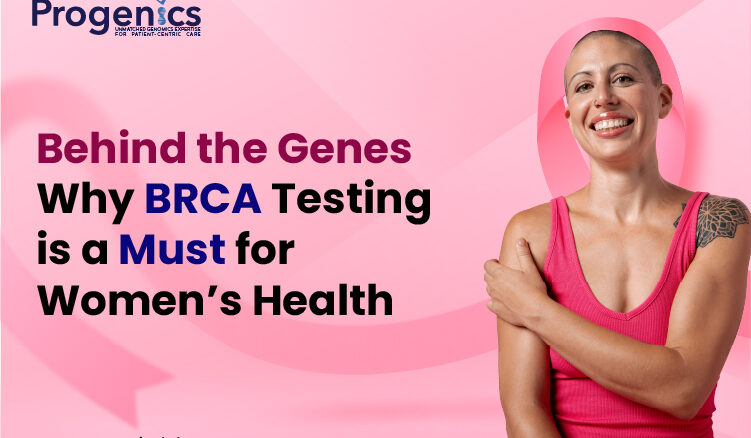Regarding women’s health, BRCA gene testing is a vital aid in the fight against inherited malignancies, especially ovarian and breast cancers. Understanding the role of BRCA genes and the benefits of genetic testing can empower women to take proactive steps toward managing their health and reducing their cancer risk.
What exactly are the BRCA genes?
Let’s start with the basics. BRCA1 and BRCA2 are genes that everyone has, and their job is to help repair DNA and keep our cells healthy. Think of them as the body’s natural defence system against genetic damage. But sometimes, these genes have mutations—errors that can increase the risk of certain cancers, especially breast and ovarian cancer. For women with these mutations, the risk of developing these cancers is much higher than average.
Why is BRCA gene testing important?
- Risk Assessment and Early Detection: BRCA gene testing provides a clearer picture of a woman’s risk of developing breast and ovarian cancers. We particularly encourage women with a family history of these cancers to undergo testing, as it can identify whether they carry mutations in the BRCA genes. Early detection through BRCA testing allows for timely monitoring and intervention, which can be life-saving.
- Knowing your BRCA status enables you to make informed decisions about your health care. Women who test positive for BRCA mutations can work closely with their healthcare providers to develop personalised screening plans. This might include more frequent mammograms, MRIs, or even considering preventative surgeries, such as mastectomy or oophorectomy, to reduce the risk of cancer.
- Impact on Family Members: If you carry a BRCA mutation, your close relatives (such as siblings, children, and parents) may also carry the same mutation. Genetic testing can provide valuable information for your family members, enabling them to make informed choices about their own health.
- BRCA testing can guide treatment decisions for women diagnosed with breast or ovarian cancer. For instance, studies have shown that certain therapies, like PARP inhibitors, are particularly effective in treating cancers associated with BRCA mutations. Knowing your BRCA status can help tailor your treatment plan for better outcomes.
- Psychological and Emotional Support: While the knowledge of carrying a BRCA mutation can be daunting, it also empowers women to control their health. Many women find comfort in knowing their risks and having a clear plan in place for monitoring or prevention. Moreover, genetic counselling can provide emotional support, helping women navigate the complex feelings that may arise from the testing process.
Who Should Consider BRCA Gene Testing?
While not everyone should undergo BRCA gene testing, some groups may benefit significantly:
Women with a Family History of Breast or Ovarian Cancer: If multiple family members have had breast or ovarian cancer, especially at a young age, BRCA testing may be advisable.
Women of Ashkenazi Jewish Descent: This group has a higher prevalence of BRCA mutations, making testing particularly important.
Women who are diagnosed with breast cancer before the age of 50: Early-onset breast cancer can be a sign of a hereditary mutation.
Women with a Family Member Who Tested Positive for a BRCA Mutation: If a close relative carries a BRCA mutation, testing can determine whether you have inherited the same risk.
The BRCA gene-testing process
Typically, BRCA gene testing entails a straightforward blood or saliva test, followed by laboratory analysis to detect mutations in the BRCA1 and BRCA2 genes. It’s essential to undergo genetic counselling before and after testing to understand the potential outcomes and implications of the results.
Taking the next step
BRCA gene testing is more than just a test—it’s a lifeline that offers invaluable insight into your health. It’s about taking charge of your future and arming yourself with the knowledge needed to make proactive decisions that could save your life.
Progenics Labs dedicates itself to assisting women in comprehending their genetic risks and equipping them with the necessary tools to safeguard their health. Our expert genetic counsellors are here to guide you every step of the way, offering personalised support tailored to your unique needs.
Don’t leave your health to chance. Take control today by exploring your BRCA gene status. Get in touch with us for a free genetic counselling session and start your journey towards a healthier, more informed life.


